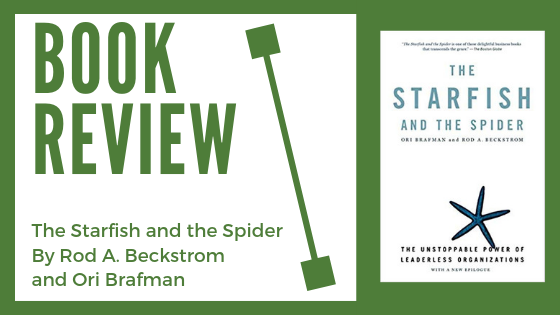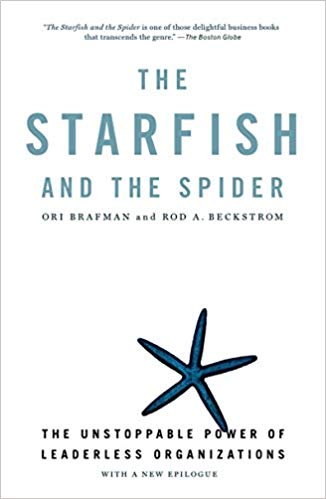Title: The Starfish and the Spider: The Unstoppable Power of Leaderless Organizations
Genre: Non-Fiction Self-Help/Business Culture
Version: Kindle
Amazon Rating: 4.4 (276 reviews as of this posting)
The Starfish and the Spider was chock full of stories I’ve never heard before, eye-opening and thought provoking questions, and challenged me to view leadership in a different light. It was a one of those books that will stick with me and I’m excited to begin viewing the world through this different lense.
Let’s dive into the good the bad and the great!
The Good
The book eventually shares the power of a hybrid model between centralized and decentralized organisations. I’m glad it went into this because while I was convinced of the power of a decentralized movement, I was wary as to the chaos it could bring if not somewhat managed. We certainly couldn’t have a fully decentralized government (or could we??).
I like the balance the book ultimately strikes.
The Bad
Even though it was written in 2006, it feels dated. With the fast moving nature of the internet era, it’s a wonder the book had any relevant examples to draw on. The authors obviously love eBay and talked about it quite frequently, but I’m led to wonder now, does anyone still shop there to this day? I haven’t heard eBay mentioned online or in real life social circles in years.
The ideas are still strong, but I’d love to see an update with modern day examples.
The Great
The idea of decentralization was fascinating. I’ve never heard of this before, and I was surprised to see the myriad of examples throughout the book which showed the theories validity. I especially enjoyed learning about how the music industry underwent massive change during the time of Napster. It showed the danger of pressing too hard to eradicate decentralized organizations and how resistant they can be to opposition.
I found this intriguing because it matches what I think about people; that we are most powerful when we take individual ownership and fight for what we believe. Especially in the millennial generation, if we don’t believe in something, we are apt to not work as hard towards it, despite a boss or others telling us we have to do it.
Decentralization is the future, and I can’t wait to see what we do next.
Pick up the book on Amazon here and see how your organization can thrive if it becomes a hybrid between centralization and decentralization.
Enjoy and best of luck in all of your entrepreneurial endeavors.
-Jordan



Recent Comments